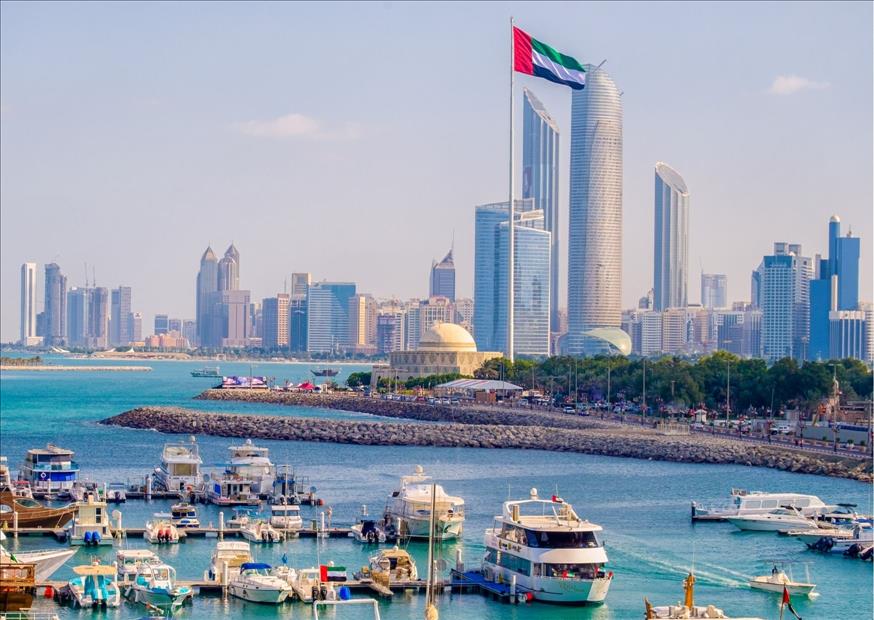
UAE Non-Oil Private Sector Hits Seven-Month High In September

The non-oil private sector in the United Arab Emirates surged in September, with the S&P Global UAE Purchasing Managers' Index climbing to 54.2, up from 53.3 in August. This marks the strongest expansion in seven months, as new business inflows rebounded sharply and domestic demand regained traction.
Growth across new orders was the standout driver. The new orders sub-index jumped to 57.2 from 53.1, registering its fastest pace since February and signalling a clear revival in demand. More than 30 percent of firms surveyed reported higher order intakes. Meanwhile, employment advanced at its most rapid rate since May, though companies exercised prudence by trimming inventories for a third consecutive month.
While input costs remained elevated, firms moderated selling price increases in response to intensifying competition. In Dubai - the UAE's commercial and tourism hub - the PMI similarly rose to 54.2, supported by healthy gains in new work, output and staffing.
Analysts note that this rebound follows several months of subdued demand, particularly in August, when sales growth slowed to its weakest in over four years. At that time, the new orders sub-index had fallen to 53.1, reflecting pressure from competition and supply chain constraints. To offset weaker inflows, firms had leaned on existing backlogs and stronger output momentum.
David Owen, senior economist at S&P Global Market Intelligence, cautioned that while momentum is encouraging, competitive pressures and capacity constraints remain latent risks. He pointed out that some firms were already seeing elevated backlog growth, which could strain delivery timelines if unchecked.
Confidence among businesses improved in September, with approximately 15 percent of respondents anticipating higher activity in the year ahead. The upbeat sentiment coincides with optimistic macro projections: the UAE Central Bank recently raised its 2025 growth forecast to 4.9 percent, attributing the upgrade largely to stronger non-hydrocarbon expansion. Non-oil GDP is expected to grow 4.5 percent in 2025 and 4.8 percent in 2026.
See also Verto Launches in DIFC, Unlocks Africa's Growing Payment CorridorsSector by sector, services and construction remain key engines of growth, buoyed by resurgent tourism, infrastructure investment, and increased domestic consumption. Firms in logistics, technology services and real estate are particularly benefitting from supportive government policies and inbound foreign direct investment.
Notice an issue? Arabian Post strives to deliver the most accurate and reliable information to its readers. If you believe you have identified an error or inconsistency in this article, please don't hesitate to contact our editorial team at editor[at]thearabianpost[dot]com . We are committed to promptly addressing any concerns and ensuring the highest level of journalistic integrity. Legal Disclaimer:
MENAFN provides the
information “as is” without warranty of any kind. We do not accept
any responsibility or liability for the accuracy, content, images,
videos, licenses, completeness, legality, or reliability of the information
contained in this article. If you have any complaints or copyright
issues related to this article, kindly contact the provider above.
Most popular stories
Market Research

- Pepeto Highlights $6.8M Presale Amid Ethereum's Price Moves And Opportunities
- Codego Launches Whitelabel Devices Bringing Tokens Into Daily Life
- Zeni.Ai Launches First AI-Powered Rewards Business Debit Card
- LYS Labs Moves Beyond Data And Aims To Become The Operating System For Automated Global Finance
- Whale.Io Launches Battlepass Season 3, Featuring $77,000 In Crypto Casino Rewards
- Ceffu Secures Full VASP Operating License From Dubai's VARA



















Comments
No comment